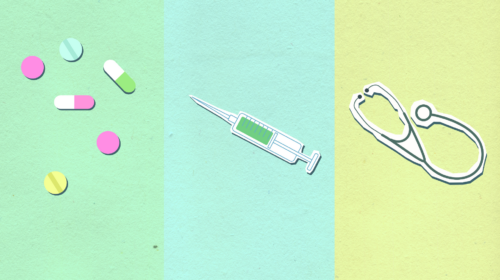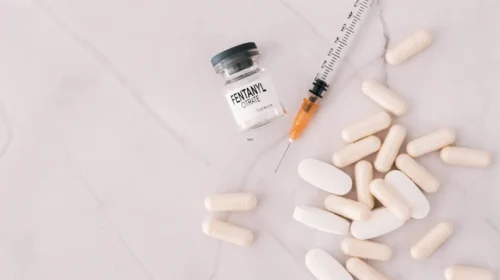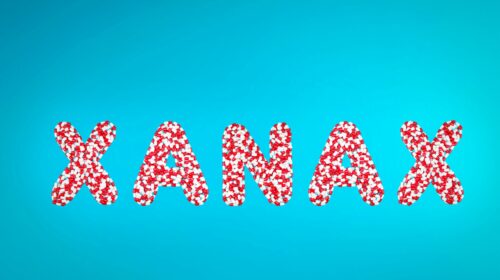Addiction and depression are often closely linked and it can be hard to know how to get help for both. People who are addicted to substances are at an increased risk of becoming depressed and depressed individuals have a greater chance of developing substance use disorders. Understanding the relationship between these two conditions and how one impacts the other in your lived experience can help you find the right kind of care.
How Addiction and Depression Affect Your Brain
Both depression and addiction involve the chemical dopamine, which is essential to feeling happy. When suffering from both addiction and depression, the brain’s dopamine system, which is involved in feelings of pleasure and happiness, can be disrupted, leading to a reduction in overall well-being. In these cases, depression can lead to substance use and vice versa. Treatment plans for addiction and depression will vary based on each person’s individual care needs, but there are multiple interventions available, including group and individualized counseling, medicines, and different types of behavioral therapy.
Sometimes, a combination of therapies is recommended. This often means meeting regularly with a counselor for private sessions and in a group setting. You may also be prescribed medication by a licensed, trained, psychiatrist in conjunction with therapy.
How Addiction and Depression Affect Each Other
Addiction and substance use can exacerbate mental health conditions and intensify symptoms. For example, if you are depressed, you may try to self-medicate with alcohol or another drug. This can lead to worsening addiction, which in turn, can lead to worsening depression. This will result in major issues in personal and professional areas and overall functioning and productivity – which will lead to more severe symptoms.
Likewise, if you have a substance use disorder and choose to ignore it, you may fall into a deep depression. Substance use disorder and mental health conditions share certain risk factors, such as exposure to trauma, family history of mental illness, substance use disorders, and stress. Early intervention is important in managing substance use disorders and mental health conditions, especially if there is a family history of these issues, as genetic factors can increase susceptibility.
Dual-Diagnosis Treatment for Addiction and Depression
Around 17 million adults in America have a dual diagnosis – meaning that they have both a mental health condition and a substance use disorder. Among these individuals, less than 18 percent get the help that they need. Therapeutic techniques that are helpful to treat someone with a dual-diagnosis issue include cognitive-behavioral therapy (CBT) and dialectical behavioral therapy (DBT).
Cognitive-behavioral therapy focuses on replacing cognitive distortions – irrational and negative thought patterns common in depression. Dialectical behavioral therapy is a form of CBT that focuses on learning coping mechanisms that address addiction and mental health issues. Cognitive-behavioral therapy, a widely used and effective treatment for depression, is often covered by health insurance, although coverage can vary.
Managing Multiple Mental Health Issues and Addiction
A term similar to dual-diagnosis disorder you may have heard of is comorbidity – a term that refers to the co-occurrence of two or more disorders, which can include a combination of mental health disorders and/or substance use disorders. A substance use disorder or addiction problem does not have to be one of the conditions. This can refer to, for example, someone with bipolar disorder and anxiety and is not the same as having a dual-diagnosis disorder. (National Institute on Drug Abuse).
It is possible, however, to have more than one psychiatric condition and a substance use disorder. A diagnosis is typically determined after a comprehensive psychological evaluation, which assesses various mental health and substance use concerns. This will occur during your introduction to treatment and assist both you and your provider in recognizing the issues that need to be addressed as well as the best ways in which to do so.
Resources to Manage Addiction and Mental Illness
Getting help to address your addiction and depression may be a difficult step to take, but it is necessary if you want to live a healthy and productive life. You may decide to see a mental health provider that specializes in substance use disorders. You can choose to participate in individual and/or group therapy. If your addiction and depression have gotten out of control, it’s best to go to a treatment center where you can get help for both.
If you are having an emergency, dial 911. There are also toll-free hotlines that refer you to treatment options that will be most beneficial to you. You may contact the National Alliance on Mental Illness (NAMI) Helpline by dialing 1-800-950-NAMI. If you are in crisis and need to speak with someone immediately and it is not a medical emergency, you may also text the name “NAMI” to 741741. The National Suicide Prevention Lifeline, offering 24/7 support, can be reached at 1-800-273-TALK (8255) in the United States.
Dual-Diagnosis Treatment at Recovery Unplugged
If you or someone you care about is struggling with co-occurring addiction and mental illness, you don’t have to spend another second battling it alone. Recovery Unplugged is ready to help you reclaim your peace of mind and mental health. We offer compassionate and effective dual-diagnosis treatment in Nashville, Florida, Austin, and Northern Virginia and are in-network with most major insurance companies to make care more accessible. Don’t wait another second to get help. Call us today to start your treatment.

























